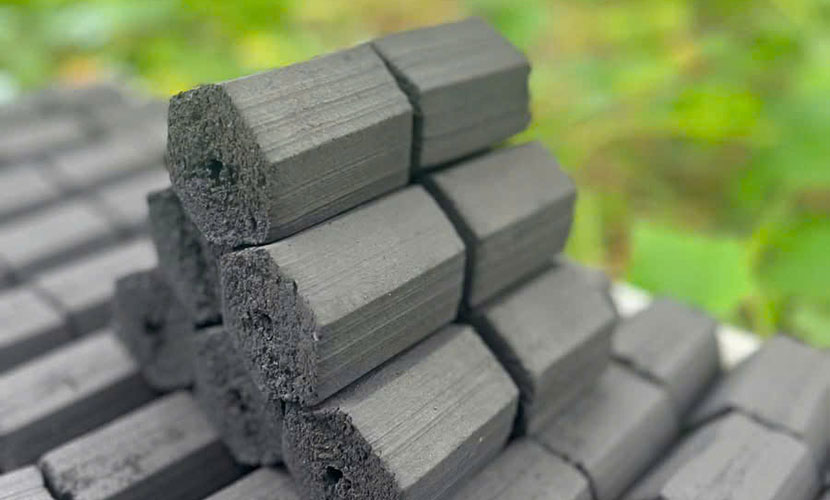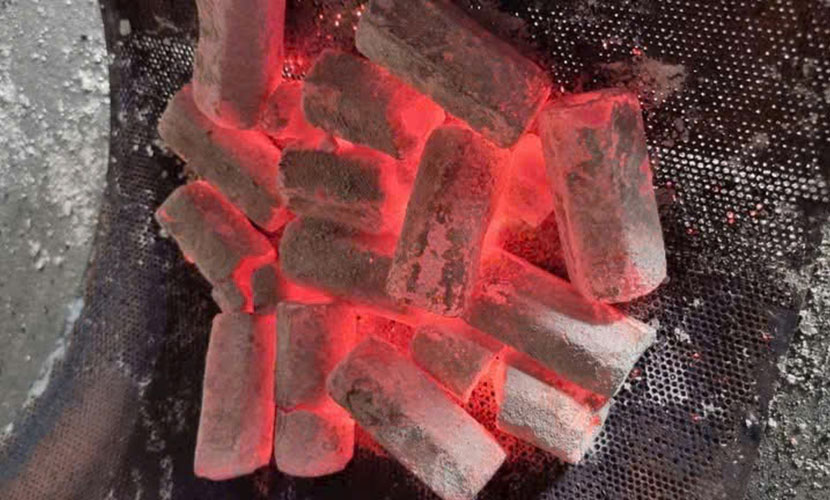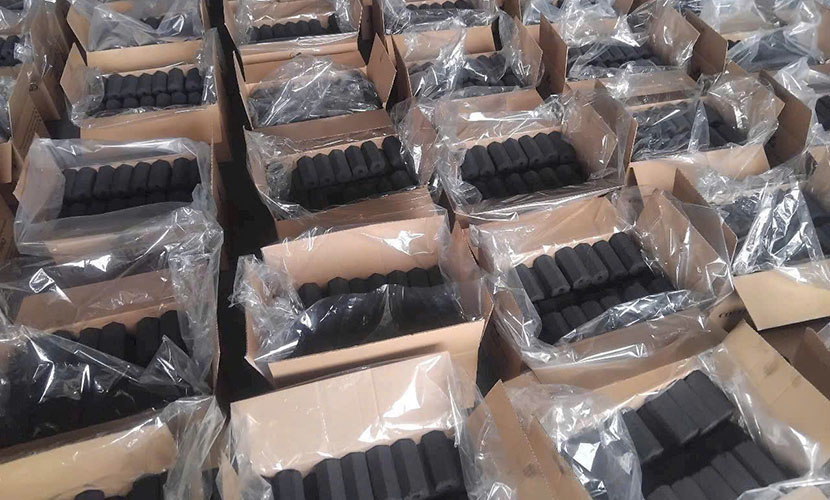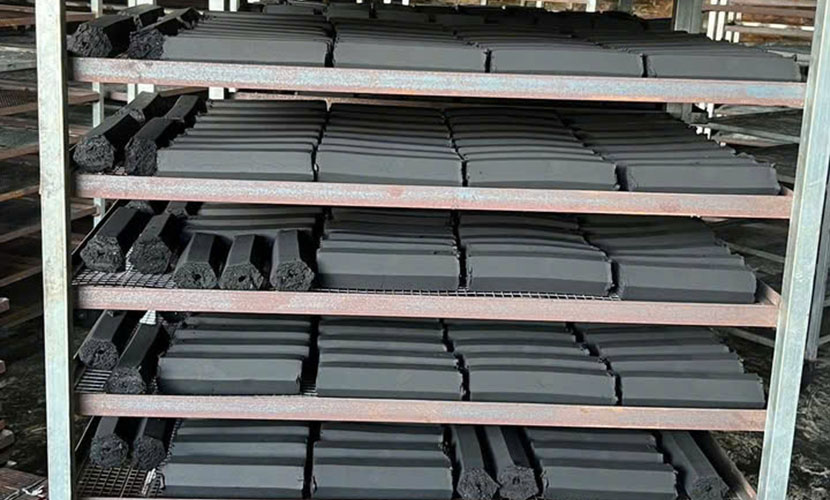
When we think of coconut shells, most of us see them as useless parts. However, this is a big mistake, as coconut shells are highly suitable for making coconut charcoal briquettes for cooking purposes. Moreover, coconut charcoal briquettes have applications in water filtration and odor removal, providing many health benefits.
What are coconut charcoal briquettes?
Coconut charcoal briquettes are made from dried coconut shells and mainly used for burning to provide heat and cook food. It is especially popular for preparing dishes in hotpot restaurants and for grilling BBQ.

Coconut charcoal briquettes
In the past, the excessive amount of coconut shells has caused waste and pollution. These challenges have also driven the development of coconut shell charcoal. The creation of coconut charcoal briquettes was a right solution to address the current severe shortage of raw materials.
In particular, coconut shell charcoal contains no harmful chemicals, making it completely safe for your health. Moreover, there are a lot of coconut shells in Ben Tre, the price is much lower than other types of wood charcoal. Therefore, Ben Tre coconut shell charcoal is increasingly popular by consumers and is a good substitution for other charcoals.
How to produce coconut charcoal briquettes?
To produce high-quality charcoals that are safe for consumers’ health, a strict manufacturing process is necessary. From selecting and classifying raw materials to building the kiln system, every stage is carefully controlled.

Coconut charcoal flames
Typically, the standard process of producing coconut charcoal briquettes includes the following steps:
Selecting raw materials: This is a crucial step in determining whether the final product will be of good quality. The chosen raw materials are usually mature, dried coconuts with high hardness and moisture content below 15%. This ensures the resulting charcoal has a strong structure and will not crumble in the next stage.
Heating the coconut shells in the kiln: After selection, the raw materials are placed in the kiln and heated at about 500°C under low-oxygen conditions. Because the heating takes place in an oxygen-deficient environment, the combustion is incomplete, serving only to remove moisture. The charcoal’s hardness and ease of ignition come from its high remaining black carbon content. The final product obtained at this stage is coconut shell briquette charcoal.

Coconut charcoal packing boxes
By continuing to activate this charcoal with steam at around 900°C, you can produce activated coconut shell charcoal. It has popular use for water filtration and odor removal.
Coconut shell charcoal has a high carbon content, making it very safe to use. However, like other types of charcoal such as wood charcoal or binchotan charcoal, its main component is carbon. When burned in oxygen-deficient conditions, it produces carbon monoxide (CO), which is extremely toxic to humans.
Coconut charcoal briquettes usually do not produce smoke during burning, a feature highly appreciated by many customers. Due to a certain amount of sulfur content in the charcoal, burning it can generate a small amount of toxic gases such as SO₂ and SO₃, which typically have a strong odor. This gas volume is significantly less thanks to the anaerobic carbonization process.

Coconut charcoal long sticks
Coconut shell charcoals are highly popular in the market for the following reasons:
Environmentally friendly, producing minimal harmful gases and not flammable by itself
High and even burning temperature allows food to cook more slowly
No preservatives or flammable agents (such as alcohol)
Long heating time, long burning duration, and very affordable price on the market.

Coconut charcoal loading
Coconut charcoal briquettes are popular in the Mekong Delta region, where coconut trees are very popular. This type of charcoal is currently exported by many local charcoal companies in Vietnam.
For local consumption, customers can buy coconut shell charcoal in retail shops, grocery stores, or gas stations. They often purchase it directly from charcoal warehouses or organic food stores. You can also easily shop online on various websites without visiting in person.
Vietnamese source: https://vietchem.com.vn/tin-tuc/than-gao-dua.html
